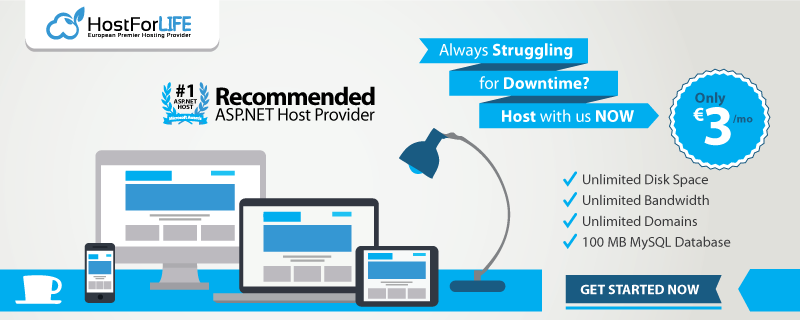Modern security models that presume no implicit confidence include zero-trust architecture (ZTA), which requires constant verification of all requests, users, and devices, regardless of their location. In this post, I describe how to use tried-and-true security concepts and tools to design and implement zero-trust principles in C# services, specifically within ASP.NET Core.
What Is Zero-Trust?
Key principles of zero-trust.
- Verify explicitly: authenticate and authorize every access request.
- Use least-privilege access: minimize permissions and scope.
- Assume breach: design systems to limit blast radius and detect anomalies.
- Secure end-to-end: protect data in transit, at rest, and during processing.
This model contrasts sharply with legacy perimeter-based security, where “inside the network” often implied trust.
Core Components in a C# Zero-Trust Setup
To build zero-trust architectures in .NET/C# services, I implement.
- Strong Identity: OAuth 2.0, OpenID Connect, Azure AD, or IdentityServer
- Fine-Grained Authorization: role-based and attribute-based access control (RBAC and ABAC)
- Mutual TLS (mTLS): both client and server authenticate with certificates
- API Gateway or Identity-Aware Proxy: centralizes authentication, rate limiting, and policy enforcement
- Telemetry and Auditing: structured logging, anomaly detection, and SIEM integration
C# Implementation Examples
OAuth 2.0 and OpenID Connect Setup
In the Program.cs
This enforces identity validation for every incoming request.
Policy-Based Authorization
In controllers.
Enabling Mutual TLS
In appsettings.json
Ensure server and client certificates are validated at the transport layer.
Supporting Tools and Patterns
- API Gateway (such as YARP, Envoy, Azure API Management): Enforce centralized policies and route requests.
- Zero Trust Network Access (ZTNA): Replace VPN with identity-aware proxies.
- Micro-Segmentation: break systems into isolated services; use service mesh tools like Istio or Linkerd for intra-service security.
- Secrets Management: store keys and secrets in Azure Key Vault or HashiCorp Vault — never in code or configs.
- Telemetry and Alerting: integrate Serilog, Application Insights, or Elastic Stack to capture access logs and security events.
Monitoring and Anomaly Detection
Integrate real-time monitoring.
- Log authentication failures and suspicious patterns.
- Send structured logs to SIEM systems (such as Sentinel or Splunk).
- Use anomaly detection to trigger alerts on unusual access behaviors.
Example Serilog setup
Final Takeaway
Building zero-trust architectures with C# services means embracing identity-first design, verifying every request, enforcing least privilege, and preparing systems for constant security posture monitoring. With the right use of ASP.NET Core’s built-in security features, mutual TLS, API gateways, and cloud-native tools, you can deliver services that are resilient, auditable, and hardened by design.
If you want, I can provide.
- A sample full zero-trust C# project
- YARP or Envoy gateway integration examples
- Step-by-step guide on setting up mutual TLS locally and in production
Full Example C# Class: SecureOrderService with Zero-Trust Principles
Here is a complete example of a C# service class designed with zero-trust architecture principles. This class integrates strong identity, role-based authorization, structured logging, and secure secrets access, fitting within an ASP.NET Core environment.
Key Features of This Class
- Uses ILogger for structured, auditable logs.
- Injects IConfiguration for securely accessing sensitive settings.
- Uses [Authorize(Policy = “AdminOnly”)] to enforce policy-based, role-aware access control.
- Implements cancellation token handling for resilience.
- Prepares for integration with a secure backend using stored API keys.
Best ASP.NET Core 8.0.11 Hosting
The feature and reliability are the most important things when choosing a good ASP.NET Core 8.0.11 hosting. HostForLIFE is the leading provider of Windows hosting and affordable ASP.NET Core , their servers are optimized for PHP web applications such as the latest ASP.NET Core 8.0.11 version. The performance and the uptime of the ASP.NET Core hosting service are excellent, and the features of the web hosting plan are even greater than what many hosting providers ask you to pay for. At HostForLIFEASP.NET, customers can also experience fast ASP.NET Core hosting. The company invested a lot of money to ensure the best and fastest performance of the datacenters, servers, network and other facilities. Its data centers are equipped with top equipment like cooling system, fire detection, high-speed Internet connection, and so on. That is why HostForLIFEASP.NET guarantees 99.9% uptime for ASP.NET Core . And the engineers do regular maintenance and monitoring works to assure its ASP.NET Core hosting are security and always up.



